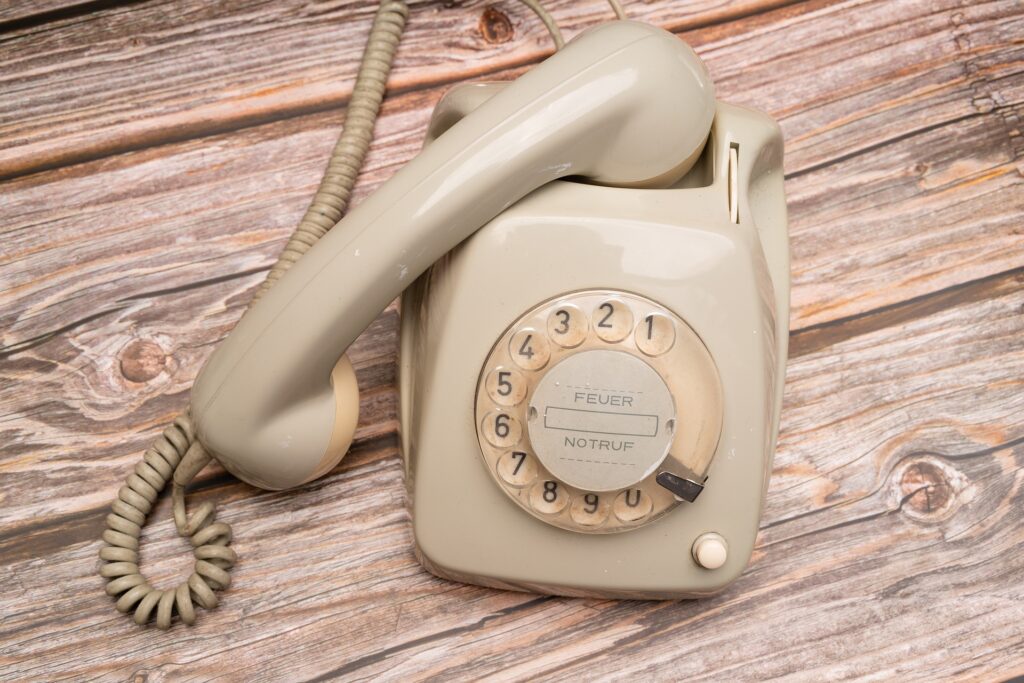
Can You Still Have a Landline with Full Fibre? – The Short Answer
Yes, but how depends on timing.
If you already have a landline number, you can usually keep it when you switch to full fibre (FTTP). Instead of running over the old copper network, calls are now delivered using VoIP (Voice over Internet Protocol). That means your phone connects through your broadband router rather than a wall socket.
What you can’t do anymore is order a brand-new copper-based landline. Openreach has introduced a nationwide “stop-sell,” so no new copper services are being installed. And from 2027 onwards, the copper landline network will be completely switched off, with all voice services moving to VoIP.
For most homes and businesses, this is actually an opportunity: you can keep your landline number, continue using your existing handset, and benefit from the flexibility of VoIP. Whether it’s a simple home phone line or a more advanced business phone setup, VoIP provides the same reliability as a landline but with extra features and often better value.
Looking to switch to VoIP and want to know how? See our guide here.
What This Means in Practice
In simple terms, the copper landline system is being phased out. That means every household and business that still relies on a landline will eventually need to move to VoIP (Voice over Internet Protocol).
If you already have a landline number, the process is straightforward: you can port your number to a VoIP service. Your calls will then run through your broadband connection rather than the copper line in the wall. In most cases, you can keep using your existing phone handset — you’ll just plug it into your router or an adapter.
If you don’t already have a landline and still want a “landline-style” service (for example, for a family home phone or a business reception line), the only option now is VoIP. New copper-based lines are no longer available, so VoIP is the standard replacement.
For home users, VoIP simply replaces the old line with minimal fuss. For businesses, it can also open the door to advanced features like call routing, voicemail-to-email, and multiple extensions — all without the costs and limitations of copper.
The key takeaway: landlines aren’t disappearing, but the technology behind them is changing. Whether at home or at work, VoIP is now the way to stay connected.
Why Is VoIP Replacing the Landline?
The move from copper landlines to VoIP (Voice over Internet Protocol) isn’t just about shutting down old infrastructure — it’s about creating a more reliable, flexible, and future-proof way of making calls.
VoIP runs directly over your broadband connection, which means it takes full advantage of the speed and stability of fibre. With an adapter (often supplied by your provider), you can usually keep using your existing home phone or desk handset. To you, it still feels like a “normal” landline — but under the hood, the call is transmitted digitally across the internet.
One of the biggest advantages is flexibility. Calls to your VoIP number don’t have to ring on just one phone in one location. They can be forwarded to a mobile, shared across multiple handsets, or even accessed via an app on your laptop or smartphone. For families, that means staying reachable on the home number wherever you are. For businesses, it means powerful features like call routing, voicemail-to-email, and the ability to scale up or down without new lines being installed.
Can You Still Have a Landline Phone with Full Fibre – FAQ’s
Can I keep my existing landline number with fibre?
Yes. You can transfer (port) your landline number to VoIP when switching to fibre. Your number stays the same, but calls run through your broadband instead of copper.
Do I need a new phone for VoIP?
Usually not. Most handsets work with VoIP if plugged into your router or an adapter. Some people choose IP phones, but they’re optional.
What happens to my landline if the internet goes down?
VoIP relies on broadband, so your phone won’t work if the internet drops. Many providers offer call forwarding to a mobile to keep you reachable.
Will VoIP cost more than a traditional landline?
No. VoIP can be included as an extra with some fibre packages or purchased through a 3rd party like Plexatalk and is usually cheaper than copper lines. Business VoIP plans can add extra features at good value.
Why can’t I order a new copper landline?
Openreach has stopped selling new copper-based services. By 2027, the copper network will be switched off, and all landlines will run over VoIP.
Is VoIP reliable enough for business use?
Yes. VoIP delivers clear, reliable calls over fibre. It also adds features like call routing, mobile apps, and voicemail-to-email, making it more flexible than copper lines.
What To Do Next
Now you know the answer to Can You Still Have a Landline with Full Fibre? – the next step is to port your number to VoIP. That way, you keep the number everyone knows, while upgrading to a future-proof service that works over your broadband connection.
If you don’t have a landline but still want a “landline-style” service at home or in your business, you’ll need VoIP from the start. It’s the modern replacement for copper lines, offering flexibility, reliability, and often lower costs.
👉 Explore our Home VoIP and Business VoIP solutions to see which option suits you best.
And if you’d like the full step-by-step breakdown of how to switch to FTTP and keep your landline, you can see our guide here.
In short: don’t wait until the 2027 deadline. Switching to VoIP now ensures a smoother transition, keeps your number safe, and puts you ahead of the change.
